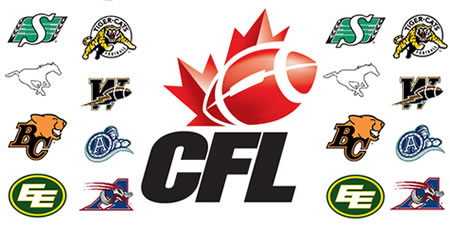
A month ago the Canadian Football League Players Association was up in arms. An arbitrator had ruled that a contract made between a CFL team and a player was valid despite the player’s agent not receiving certification to act as a CFLPA agent prior to the negotiation and execution of the agreement. The player wanted out of the contract, the CFLPA backed the player, yet the arbitrator said the deal was effective and the player would have to comply with its terms.
The CFLPA said that it would proceed with an application for judicial review immediately after the arbitrator’s ruling was handed down. The Association’s official release stated, in part, “The CFLPA’s position is that CFL Clubs who negotiate with unregistered agents are at a distinct advantage in those discussions, and are depriving the CFL Player involved, regardless of who the player is, of his right to be represented by an agent who is familiar with the normal protocol of CFL Standard Player Contracts.” The Ontario Court of Justice disagreed, but in the end it also decided to quash the arbitrator’s ruling and set it aside.
In the court’s opinion it cited to Article 28(1) of the CFL collective agreement, which provides that “All Member clubs shall be required to negotiate with each Player or any person designated by the Player in writing to represent the Player. The Member Club shall not deal with any person who is not registered as a Contract Advisor with the C.F.L.P.A. It is agreed that Member Clubs, Contract Advisors and Players shall, at all times, negotiate in good faith and act in accordance with ethical business practices. In the event that a Member Club is contacted by a Contract Advisor not registered with the C.F.L.P.A., the Member Club shall notify the C.F.L.P.A. forthwith.” (emphasis added).
The standard of review on appeal of the arbitrator’s ruling was one of reasonableness. Interestingly, the court noted that there was evidence that 50% of CFL players use unregistered contract advisors to negotiate team deals on their behalf. Instead of quashing and setting aside the arbitrator’s ruling based on the use of an unregistered contract advisor, the court was more concerned that the CFL team failed to properly exercise its option over the player and that “the language used in the letter” sent by the CFL team to the player “is not capable of being construed as a clear communication of an intention to exercise the option and the arbitrator’s conclusion that it was clear was unreasonable.”
The court’s ruling is instructive for two reasons: (1) it shows just how meticulous teams must be in the execution of their options — instead of writing letters to players in the form of “offers”, the communications must be clear that the teams wish to invoke their option rights; and (2) the mere fact that an agent is not certified by the CFLPA is not enough to void a contract that he or she negotiates on behalf of a player with a CFL team. The court noted, “While the arbitrator could have declared that Williams [the player] was no longer obligated to perform the contract, the arbitrator’s decision to hold him to its terms falls within the range of possible reasonable outcomes.”
Decision of Ontario Court of Justice Re CFLPA Application for Judicial Review of Williams’ Arbitration by Darren Adam Heitner
